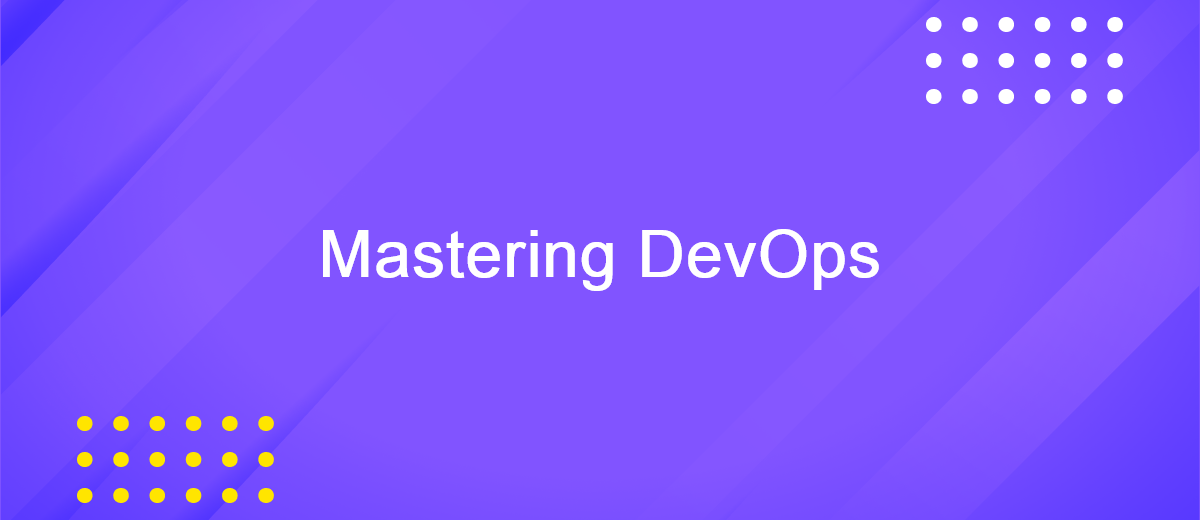Mastering DevOps: Key Concepts, Tools, and Best Practices
DevOps methodology is an integral part of successful projects in the field of software development. It combines development and operation processes, allowing teams to work more efficiently and harmoniously. In this article, we will consider in detail what DevOps is, what the essence of this concept is, what tools and services are used in this area of work on software. In addition, you will learn what a DevOps engineer is, how to become one, and what skills they need, as well as what challenges most often accompany the implementation of this approach and what future awaits it.
What is DevOps
DevOps is a methodology that combines development and operations processes to optimize software creation and deployment. It was first presented in 2009 at the DevOps Days conference in Belgium by one of its founders, IT consultant Patrick Dubois. The main goal of DevOps is to remove barriers between development teams and system administrators in order to speed up product releases, improve their quality, and increase user satisfaction.
The term “DevOps” captures the essence of this approach – the combination of development and operations processes, which in the past often existed separately. Developers created code, and operations specialists were responsible for deploying and maintaining it in production. This resulted in delays and errors due to a lack of coordination between teams. DevOps bridges these gaps by implementing practices that promote close collaboration throughout all stages of the product lifecycle.
The DevOps lifecycle consists of several key stages: planning, development, testing, deployment, monitoring, and support. These stages are closely interconnected and repeated within a continuous cycle (Continuous Integration/Continuous Delivery, CI/CD). This approach allows you to release updates and fixes as quickly and painlessly as possible.

A clear understanding of the meaning of DevOps and the proper application of this methodology provides companies and teams with a number of significant benefits:
- Accelerated product release. Comprehensive automation helps IT professionals release new applications and updates to existing software faster. According to research, teams with a high level of DevOps implementation go from test version development to final release several times faster than their competitors with a low level of organization.
- Focus on strategic tasks. Well-established DevOps processes allow you to spend less time on daily routine, giving you more resources to complete strategically important tasks.
- Improving the quality of service. Automating workflows reduces the number of errors and product defects that arise due to the human factor. According to statistics, the implementation of DevOps minimizes the number of releases and updates required to fix bugs. In addition, it helps speed up the recovery of the system after failures, which significantly improves the quality of user service.
DevOps Tools and Technologies
DevOps tools and technologies play a key role in automating and streamlining development and deployment processes. They help reduce the time between writing code and deploying it to production. This increases the flexibility of teams and their ability to quickly respond to changes. They make the release process more predictable and reduce the risk of errors and failures.
Main technologies:
- Containerization. It is the isolation of applications and their dependencies to make them portable across different environments so that the application can run the same way on any infrastructure.
- Orchestration. It is the management and automation of containers at scale. It enables you to efficiently deploy, scale, and maintain complex applications.
- Automation. It is the execution of routine tasks (such as testing or deployment) without human intervention. Using this technology speeds up processes and reduces the risk of human errors.
- Automate the work of an online store or landing
- Empower through integration
- Don't spend money on programmers and integrators
- Save time by automating routine tasks
Main tools:
- Jenkins. It is a platform for automating continuous integration and delivery (CI/CD). It simplifies building, testing, and deploying applications.
- Docker. It is a containerization tool. It isolates applications and their dependencies, ensuring their stable operation in different environments.
- Kubernetes. It is a container orchestration system that automates the deployment and management of containerized applications.
- Ansible. It is a configuration management tool that automates tasks such as server setup and software deployment.
- Prometheus. It is a monitoring and alerting tool that helps you track metrics and identify issues.
- ELK Stack. It is a set of tools for collecting and analyzing logs. It helps to visualize data and find failures.
All the listed DevOps automation tools and technologies allow you to speed up the work of teams and improve the interaction between developers and operational specialists. In addition, their use makes it possible to guarantee the reliability of software.
Best Practices in DevOps
Successful implementation of DevOps requires following a number of practices that help optimize processes and stabilize the work of teams. The best of these are considered to be:
- Continuous integration and delivery (CI/CD). Automating the process of testing and deploying code allows you to quickly find errors, improve software quality, and speed up the release of new versions.
- Infrastructure as code (IaC). An approach in which infrastructure is described as software code, it helps manage servers and networks in the same way as applications. It ensures consistency and simplifies the process of reproducing environments.
- Test automation. It is important to automate not only deployment but also application testing. This speeds up the release process and reduces the likelihood of critical errors in production.
- Monitoring and logging. Constant performance monitoring and logging of all processes helps identify and resolve problems at an early stage, ensuring reliable system operation.
- Collaborative culture. Creating an environment where developers and operations teams work together helps remove barriers and improve communication. It is the foundation of successful DevOps.
Following these practices improves development and deployment efficiency, reducing risk and improving overall results. These approaches help teams adapt to change more quickly and make product performance more stable and predictable.
What is a DevOps Engineer
A DevOps engineer is a specialist with developer and system administrator skills who plays a key role in the process of creating, testing, and deploying software. What does a DevOps engineer do? Their main task is to establish effective interaction between the development and operational support teams to achieve a common goal – fast and stable release of products. In fact, they work at the intersection of development and operations, facilitating the seamless transfer of code to production environments and are responsible for its stable functioning.
Key tasks of a DevOps engineer:
- Process automation: create and maintain automated processes for building, testing, and deploying software.
- System monitoring: continuously monitor the health of applications and infrastructure to prevent failures and ensure their smooth operation.
- Infrastructure management and automation. Using the IaC approach to manage infrastructure through code makes it easier to scale systems and monitor their health.
DevOps engineers not only help speed up development but also create conditions for more effective collaboration between development and operations teams. Thanks to their efforts, operational risks are reduced and applications run smoothly under any conditions.
How to Become a DevOps Engineer
A DevOps engineer can be a specialist with deep technical knowledge and skills, as well as developed soft skills. For those who want to become one, it is important, first of all, to master programming languages, DevOps services (automation tools, containerization, orchestration), and cloud technologies. Moreover, it is necessary to understand the principles of IaC and security.

To successfully automate processes, maintain system stability, and effectively solve problems, a DevOps engineer needs skills and abilities in the following areas:
- Automation of software development and deployment processes.
- Managing and scaling containerized applications.
- Setting up and maintaining monitoring tools to prevent failures.
- Version control and environment configuration with IaC.
- Effective interaction with development and operations teams.
- Solving problems under high workload and tight deadlines.
- Optimizing processes to improve system performance and resilience.
In addition to technical competence, a DevOps engineer must have advanced soft skills. A person’s success in this position depends on their ability to effectively interact with other teams. Good communication skills, the ability to resolve conflicts, and work in conditions of constant change help them quickly respond to problems, find compromises, and coordinate processes between development and operational support. Constant training and practice are the keys to developing in this profession and getting the best DevOps jobs.
Where to Study and Work
Being a DevOps engineer requires a combination of theoretical knowledge and practical skills, which can be acquired through both formal education and self-study. Many universities offer programs in information technology and computer science that provide a solid foundation for working in DevOps. However, specific skills (containerization, automation, and IaC) are often additionally taught in specialized courses.
A number of online learning platforms (such as Udemy, Coursera, edX, and Pluralsight) offer courses on DevOps tools and technologies. They provide an opportunity to learn version control systems (Git), CI/CD tools (Jenkins), containerization (Docker), and orchestration (Kubernetes) in a convenient format. Certification programs from cloud providers such as AWS, Google Cloud, and Microsoft Azure are also useful, as they provide training in the specifics of cloud-based DevOps solutions.
As for DevOps engineer jobs, such specialists are in demand in a wide range of companies, from startups to large corporations. They often find work in IT companies, financial and technology firms, as well as in areas related to cloud infrastructure support. DevOps engineers are especially valued in organizations that actively implement automation and cloud solutions to improve the efficiency of their processes.
Challenges and Future of DevOps
Despite its obvious benefits, DevOps faces a number of challenges that can slow down or complicate its adoption in organizations. The main issues include:
- Cultural change. DevOps requires a restructuring of processes and company culture, which can be difficult for organizations with established ways of working and hierarchies.
- Automation of processes. Successful implementation of automation requires not only suitable tools but also highly qualified employees.
- Security. Focusing on security is necessary at every stage of development and deployment (DevSecOps). This requires additional resources, especially in the context of using cloud solutions.
- Continuous learning. Rapid technological advancements require DevOps engineers to continually update their knowledge and adapt to new tools and methodologies.
The future of DevOps promises to be dynamic. The concept will continue to evolve along with technological changes. One area of growth will be the increased use of artificial intelligence and machine learning to automate processes and predict failures or problems. Automation will expand beyond infrastructure and deployment to include testing, security management, and monitoring.
With the development of cloud technologies and the introduction of containers, DevOps is expected to continue to play an important role in creating scalable and flexible applications. In the future, we can expect even closer integration of this approach with the concepts of microservices and serverless architecture.
Conclusion
DevOps is a key approach in software development and operation. Understanding the principles of this concept opens up new horizons for improving the quality and speed of software development. This is especially important in a rapidly changing market. Effective implementation of this methodology not only helps to speed up product releases, but also to create more stable and reliable systems. As a result, companies can significantly improve their competitiveness and user satisfaction.
A DevOps engineer is an important link between development and operational processes, ensuring the synchronization of the work of different teams and optimization of all stages of the product life cycle. However, to successfully implement this concept, a company will need not only a highly qualified, well-trained specialist but also a change in corporate culture, approaches to security, and continuous training of employees. All this will be necessary because, in the future, development and operational processes will continue to transform, and DevOps will become increasingly integrated with new technological solutions.
Let us remind you that with the help of our ApiX-Drive online connector, you can implement automation on your own, without coding or special skills. Check out the step-by-step guides for setting up the integrations:


